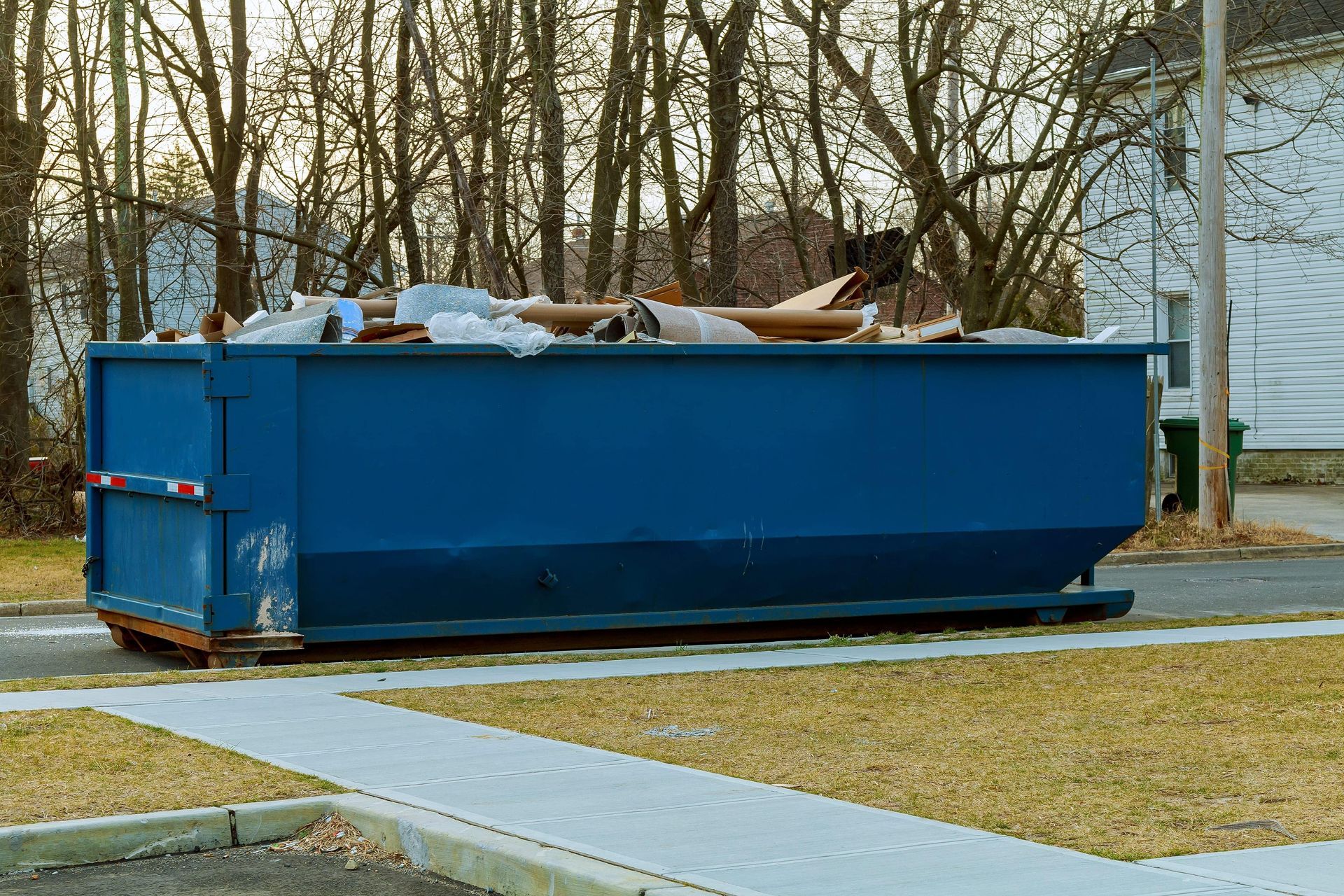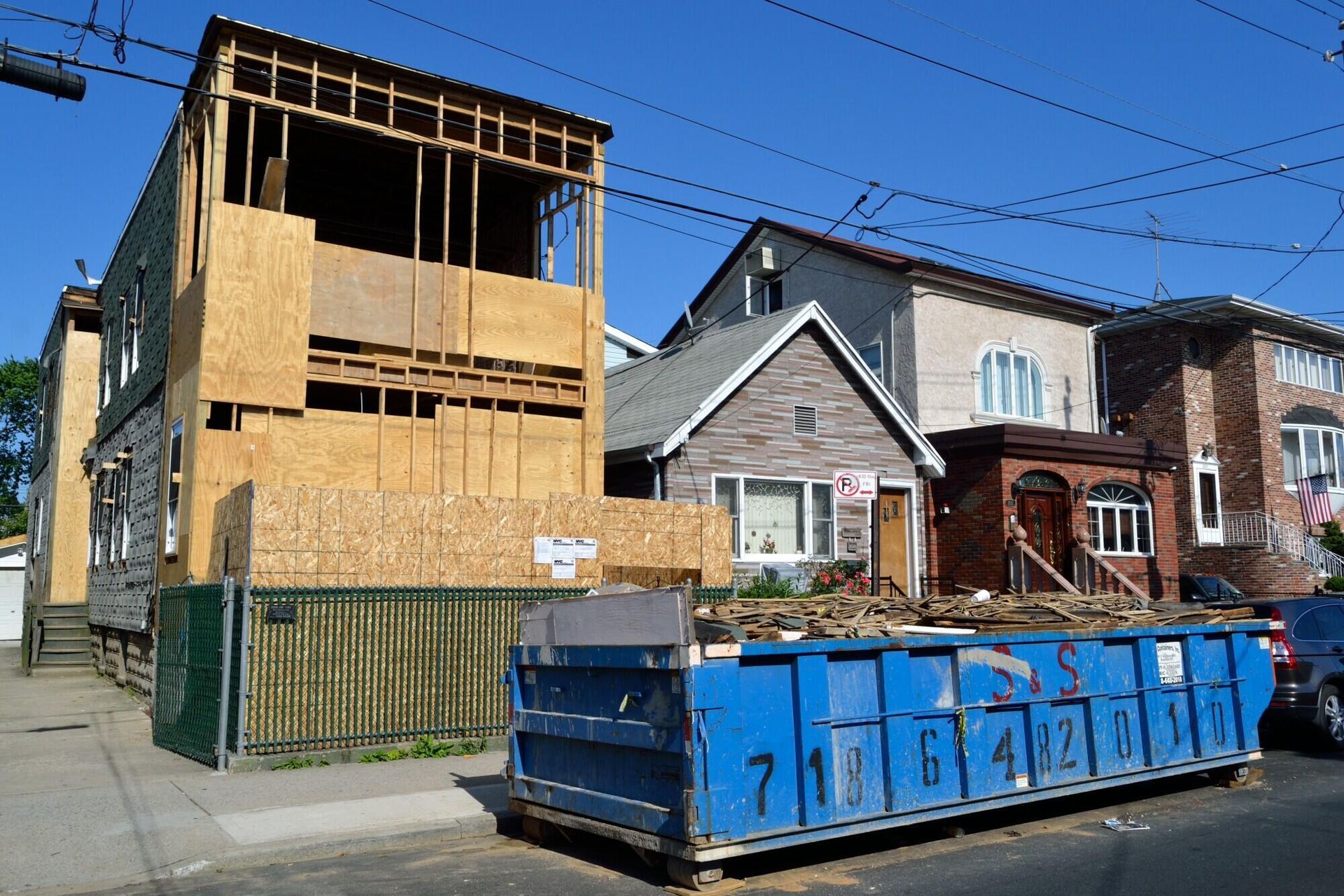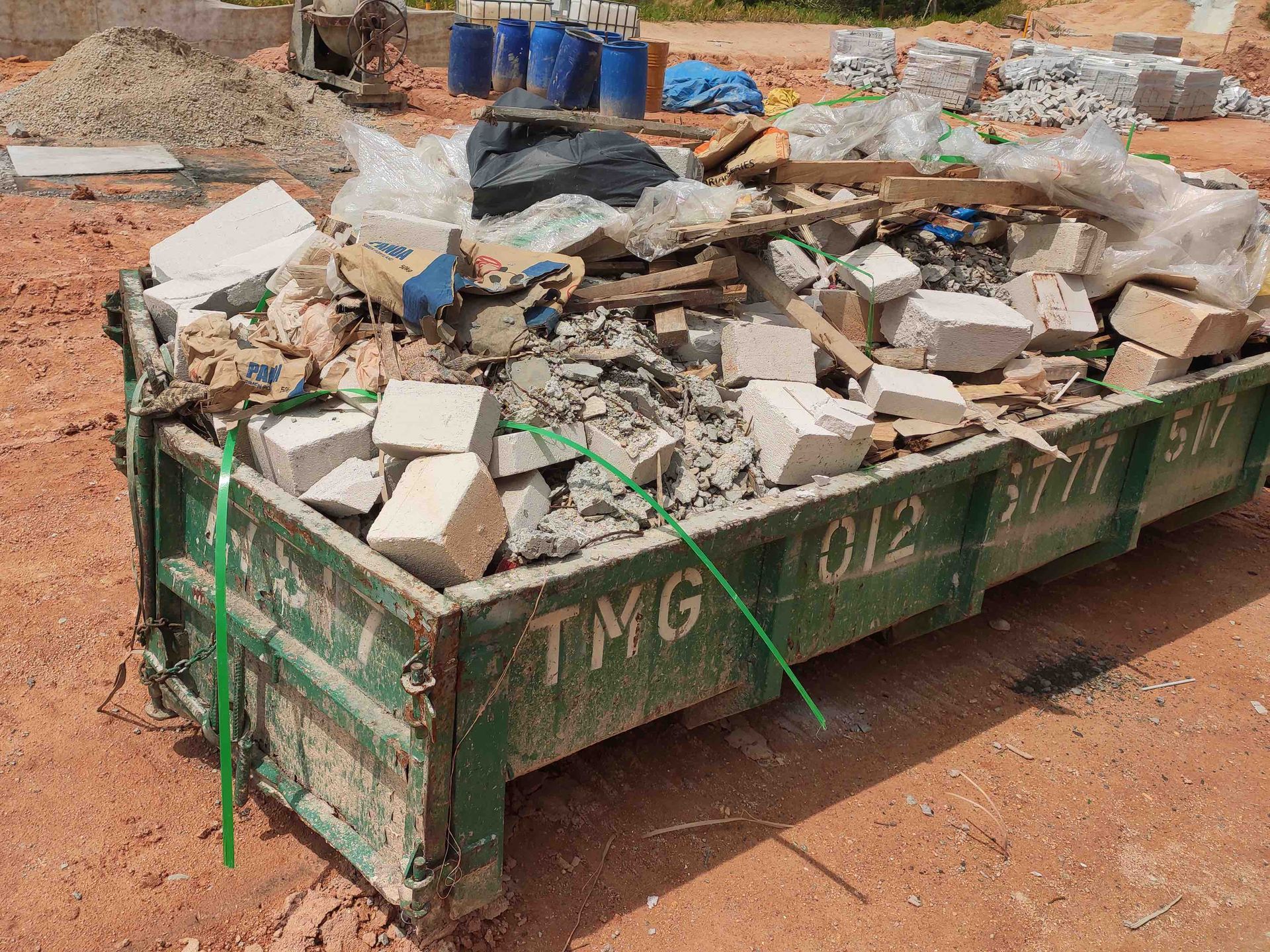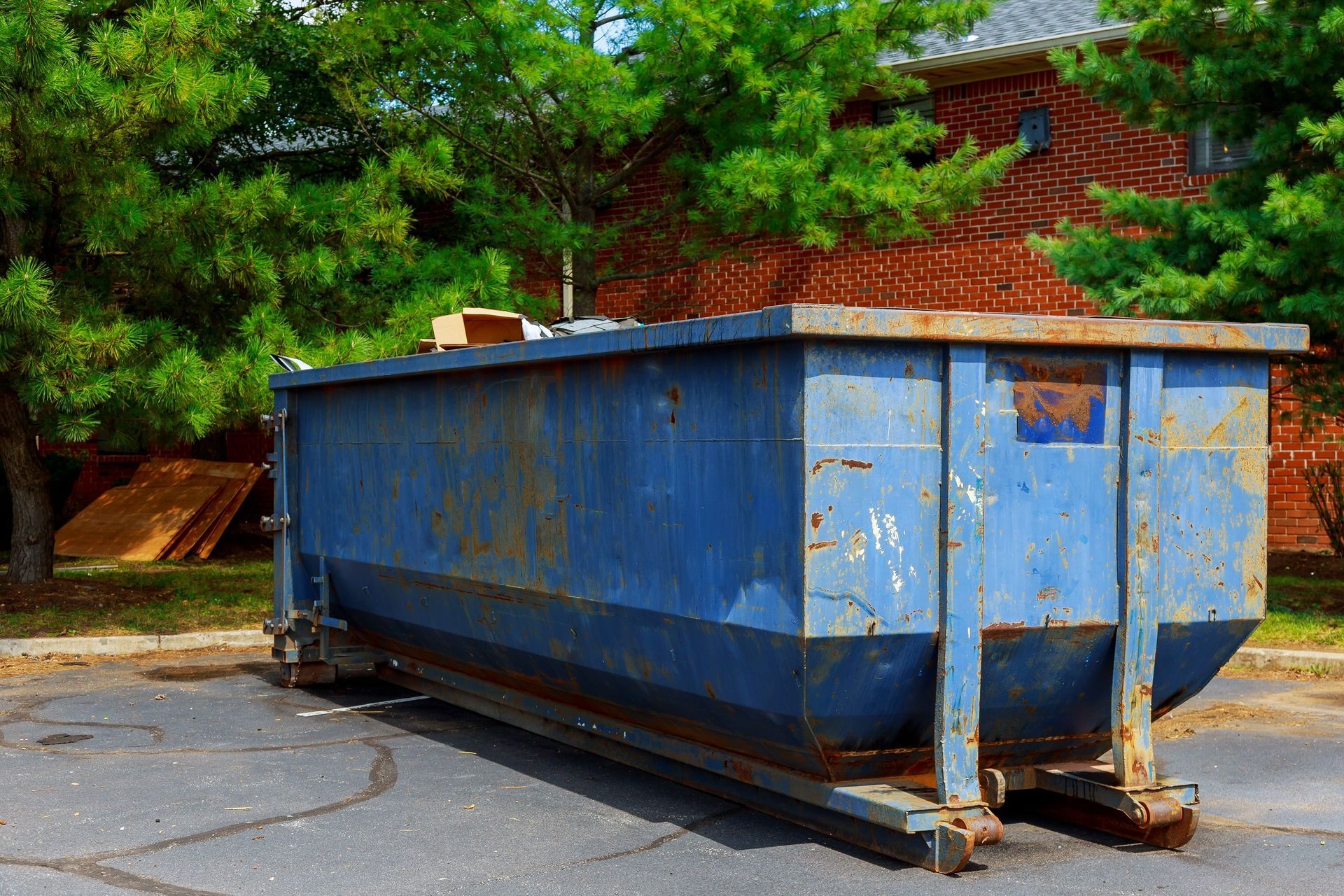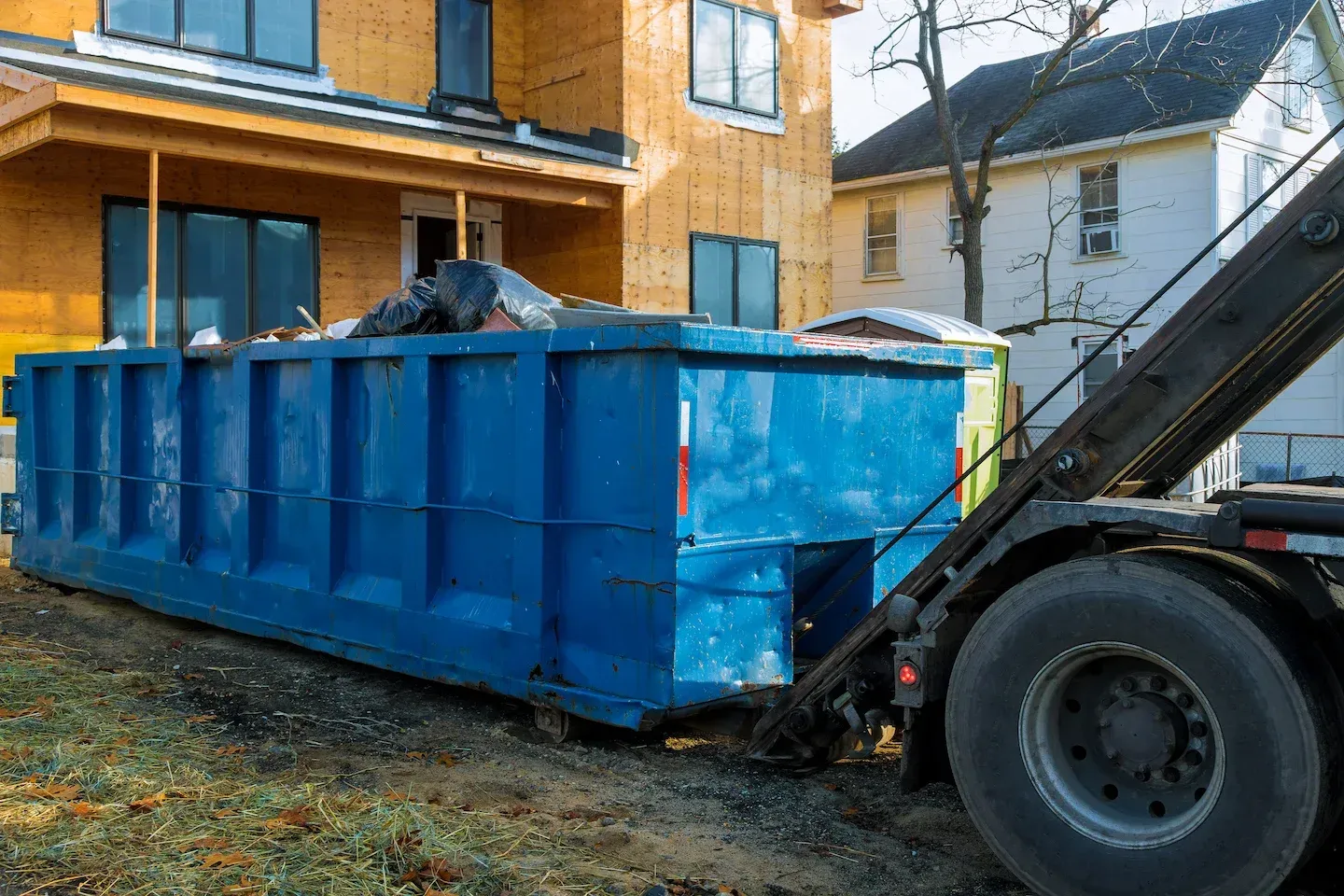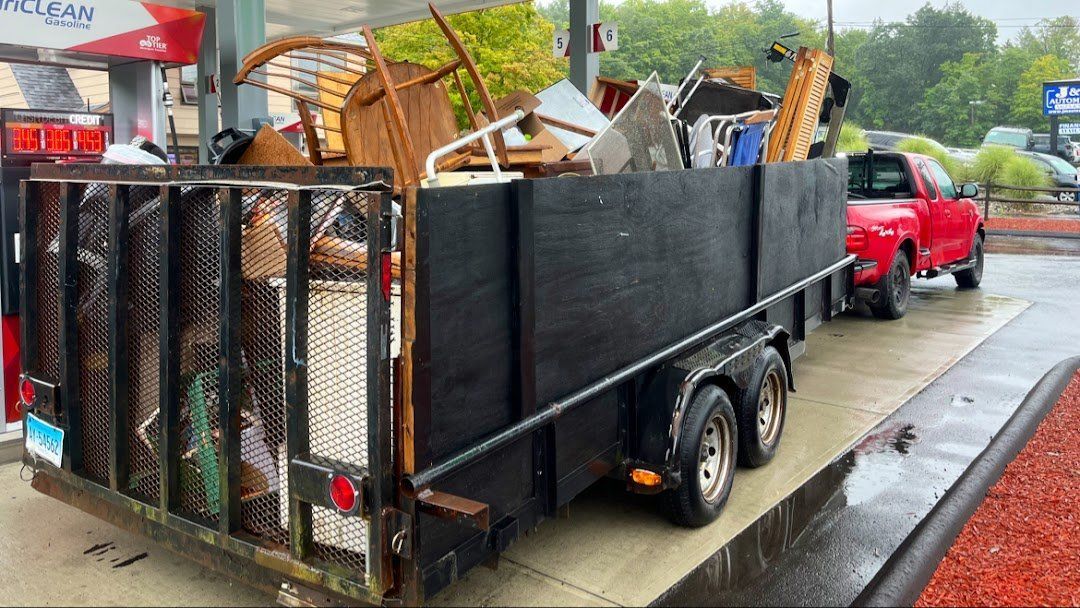Top 7 Items You Should Never Throw in a Rental Dumpster
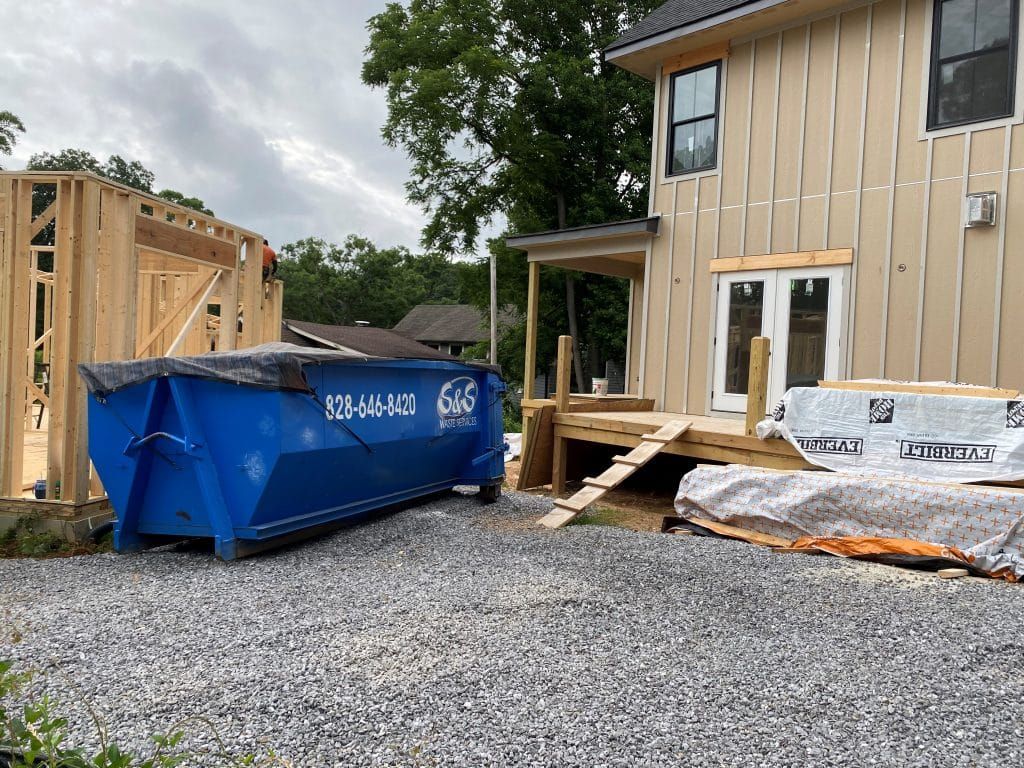
Table of Contents
- Think Before You Toss: Understanding What Belongs Outside the Rental Dumpster
- Batteries and Electronics
- Paints, Solvents, and Liquids
- Tires and Vehicle Parts
- Appliances with Refrigerants
- Medical Waste and Sharps
- Propane Tanks and Flammable Containers
- Asbestos and Contaminated Building Materials
- Final Thoughts and Responsible Disposal Tips
Key Takeaways
- Throwing the wrong items in a rental dumpster can result in fines, environmental damage, and rental issues.
- Items like electronics, hazardous chemicals, and medical waste are restricted for safety reasons.
- Following dumpster rules ensures your waste is managed legally and responsibly.
- This guide explains what
not to put in your rental dumpster and offers tips for safe disposal alternatives.
Think Before You Toss: Understanding What Belongs Outside the Rental Dumpster
When it comes to managing large-scale cleanups—from remodeling projects to major decluttering efforts—renting a dumpster can be one of the smartest choices. A rental dumpster provides a centralized, convenient way to dispose of junk and debris efficiently. However, knowing what not to throw in your bin is just as important as knowing what you can throw in.
At St. Charles Dumpster Rentals, we often get questions about what is allowed in a dumpster. We’ve seen it all—old TVs, leftover paint, even propane tanks. And unfortunately, many of these items pose serious risks to dumpster safety and can violate local waste management laws. To help you stay safe, legal, and eco-conscious, we’ve put together this list of the top 7 items you should never throw in a rental dumpster—and what to do instead.
1. Batteries and Electronics
Why It’s a Problem:
Batteries and electronics (like TVs, laptops, and cell phones) contain heavy metals and toxic chemicals that can leak into soil and groundwater when crushed or buried in landfills.
Dumpster Rules Tip:
E-waste should be taken to certified recycling centers or local electronic drop-off events. Many states have strict laws about disposing of electronics, and including them in your rental dumpster could lead to fines.
Safe Disposal Options:
- Drop off at a local electronics recycling center.
- Check with manufacturers for take-back programs.
- Contact your municipality for designated e-waste collection days.
2. Paints, Solvents, and Other Liquids
Why It’s a Problem:
Oil-based paints, solvents, and many cleaning liquids are classified as hazardous waste. They’re flammable, can emit toxic fumes, and are harmful to the environment.
Dumpster Safety Tips:
Never pour liquid paint or chemicals into your dumpster. Even dried latex paint should be verified with your rental provider before disposal.
Safe Disposal Options:
- Allow latex paint to dry out completely, then confirm it’s allowed.
- Drop off hazardous liquids at a local hazardous waste facility.
- Reuse or donate leftover paint to community centers or art programs.
3. Tires and Vehicle Parts
Why It’s a Problem:
Tires do not decompose easily, and they can trap gases and “float” in landfills. They also pose a fire hazard and can contribute to breeding grounds for mosquitoes.
Dumpster Rules Reminder:
Most rental dumpsters prohibit tires and auto parts because landfills and processing facilities treat them differently from regular waste.
Safe Disposal Options:
- Return old tires to a tire retailer (many accept used tires for recycling).
- Bring them to an automotive recycler or tire collection facility.
4. Appliances Containing Refrigerants
Why It’s a Problem:
Items like refrigerators, freezers, and air conditioners contain Freon and other refrigerants that are tightly regulated due to their environmental impact.
Dumpster Safety Tips:
Don’t toss these in your rental dumpster unless a professional has properly drained the refrigerants and certified it for disposal.
Safe Disposal Options:
- Contact a local HVAC technician for refrigerant removal.
- Check with your waste management authority about appliance recycling programs.
5. Medical Waste and Sharps
Why It’s a Problem:
Used needles, syringes, medications, and other medical waste pose a serious health risk to sanitation workers and the environment. They can cause injuries and transmit diseases.
Dumpster Rules Clarification:
No type of biohazard or sharps waste should ever be placed in a dumpster, even if securely wrapped.
Safe Disposal Options:
- Use approved sharps containers and return them to participating pharmacies or medical facilities.
- Drop off medications at authorized prescription drug drop-off locations.
6. Propane Tanks and Other Flammable Containers
Why It’s a Problem:
Even when empty, propane tanks and gas containers can explode under pressure or heat. They’re extremely dangerous in landfills and processing facilities.
Dumpster Safety Tips:
Any pressurized container—propane tanks, fuel cans, aerosols—should be treated as hazardous and kept far away from your
rental dumpster.
Safe Disposal Options:
- Contact local hardware stores or propane suppliers for tank return or recycling.
- Take flammable containers to your area’s hazardous waste collection site.
7. Asbestos and Contaminated Construction Materials
Why It’s a Problem:
Asbestos was used in insulation, tiles, and older building materials—but is now known to be highly toxic when disturbed. Even trace amounts in dust can cause lung damage.
Dumpster Rules for Renovations:
If your construction or demolition project involves an older home, check for asbestos before you start. Do not assume it’s safe to toss materials in your rental dumpster without professional testing.
Safe Disposal Options:
- Hire an asbestos abatement professional to test and remove it.
- Use certified disposal bags and contact a hazardous materials handler.
Final Thoughts on What NOT to Put in Your Rental Dumpster
Renting a dumpster can greatly simplify your cleanup project—but knowing what’s off-limits is key to doing it safely, legally, and responsibly. From old electronics to dangerous chemicals, certain items require special handling that your typical rental dumpster setup cannot accommodate.
Ignoring dumpster rules doesn’t just risk fines and additional fees—it could endanger waste workers, harm the environment, or delay your project. At St. Charles Dumpster Rentals, we provide clear guidance and professional insight on what can and can’t go in your dumpster, ensuring a smooth and safe rental experience from start to finish.
If you’re unsure about an item, don’t hesitate to reach out. We’re here to help you make smart, informed decisions with your waste disposal.
Contact Us for Safe, Hassle-Free Dumpster Rentals
Need a dumpster but unsure about what you can toss? Contact St. Charles Dumpster Rentals for professional advice and safe disposal services. Whether it’s a home renovation, estate cleanout, or commercial project, we’ll help you choose the right size and provide all the dumpster safety tips you need.
Email us through our
stcharlesdumpsterrentals@gmail.com or call us today at
(636)-245-0315. Let’s make your cleanup smarter, safer, and simpler—dumpster rules and all.
Our team is happy to walk you through the best option based on your project scale.
Frequently Asked Questions
1. What items are prohibited in a rental dumpster?
Many items are not allowed in a rental dumpster, including batteries, electronics, tires, paints, solvents, propane tanks, and medical waste. These materials can be hazardous or require specialized disposal methods. Following proper dumpster rules ensures your project stays compliant and safe.
2. Why are there rules for what can go into a dumpster?
Dumpster rules exist to protect people, property, and the environment. Certain materials—like asbestos, flammable items, and chemicals—can be dangerous if not handled correctly. By following these rules, you minimize legal risks, avoid penalties, and contribute to a safer waste management process.
3. Can I dispose of household appliances in a rental dumpster?
Some household appliances may be allowed in a rental dumpster, but others—like refrigerators and air conditioners—often contain refrigerants that must be professionally removed. Always check with your provider for guidance and review local dumpster safety tips to avoid fines or delays.
4. What are some key dumpster safety tips to follow during my rental?
Basic dumpster safety tips include: never overfill your dumpster, avoid placing hazardous materials inside, keep children and pets away from the area, and ensure the location is level and stable. Safety is essential for both renters and workers handling the debris.
5. How do I know what size rental dumpster I need for my project?
Choosing the right rental dumpster size depends on your project's scope and the type of debris. It's also important to consider dumpster rules that limit weight or restrict specific items.
